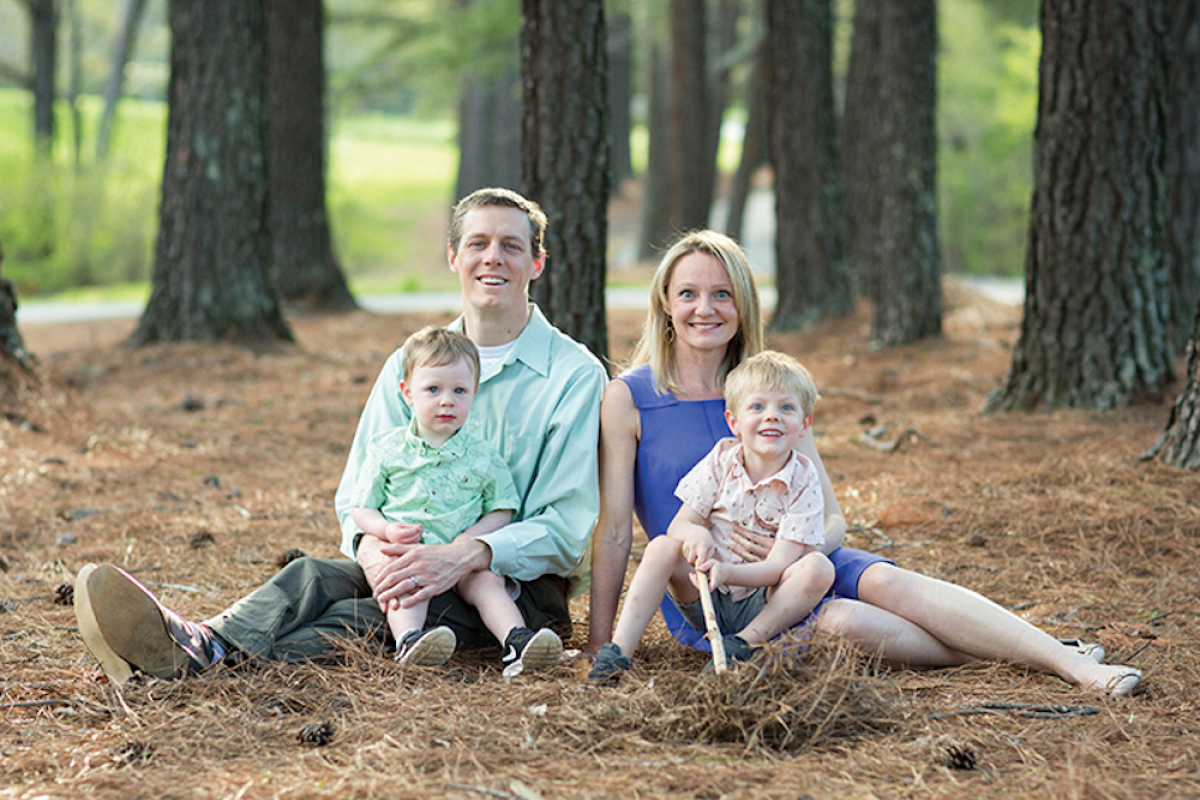For This UVA Doctor, Cancer Care is Personal
A few years ago, Dr. Nicole Kelleher won the Charlottesville Women’s Four Miler, one of her many feats as a former professional triathlete.
However, as the UVA Cancer Center’s physical medicine and rehabilitation doctor prepared for this year’s race, instead of focusing on having the fastest time, her main goals were to raise money to support breast cancer research at UVA, and to survive her own recent cancer diagnosis.
On March 18, 2019, Dr. Kelleher—who attended UVA for medical school, and who completed her residency here prior to joining the faculty—learned that she had a form of breast cancer that required a double mastectomy.
Fortunately, because of her family’s history of cancer, she was already a patient at UVA’s High-Risk Breast and Ovarian Cancer Program, one of the nation’s first such dedicated programs and the only one of its kind in Central Virginia.
Dr. Kelleher became a patient at the High- Risk Program in her 30s, after losing her mother and two grandparents to cancer. For years the personalized screening she received—which included genetic testing and regular MRI scans—showed no cancer. Then, when she stopped breastfeeding her youngest son, cancer appeared.
“If one just looked at Nicole’s negative genetic testing, it is possible that someone could have missed her incredibly high-risk status and simply had her doing regular cancer screenings starting at 40 or 50,” says Dr. Susan Modesitt, who directs UVA’s High-Risk Program.
“I cannot tell you how grateful I am to the High-Risk Program and everyone at the Cancer Center,” says Dr. Kelleher, adding special thanks to her department chair, Dr. Robert Wilder, and her colleague Dr. Regan Royer, both of whom offered Dr. Kelleher incredible levels of emotional support, and even stepped in to cover Dr. Kelleher’s patients during her recovery. “Thanks to them, I am very likely to watch my cherished children grow and to see them graduate high school and college.”
With time constraints and growing patient caseloads, Dr. Kelleher knows firsthand that the pressures of practicing medicine can sometimes challenge a doctor’s ability to have the empathy that each patient deserves. This experience, she says, has changed that.
“While I know that I’ve always given my patients good care, my investment in giving them a more personal degree of care has really gone up,” says Dr. Kelleher, who cares for patients experiencing musculoskeletal and neurological problems following cancer treatment.
Dr. Kelleher knows she will have to continue to be diligent about her health, as colon and ovarian cancer also run in her family. But she also knows that she has the support of a family that extends well beyond a bloodline.
“Despite being here for the last 12 years,” she says, “I have never felt more a part of the UVA family.”

